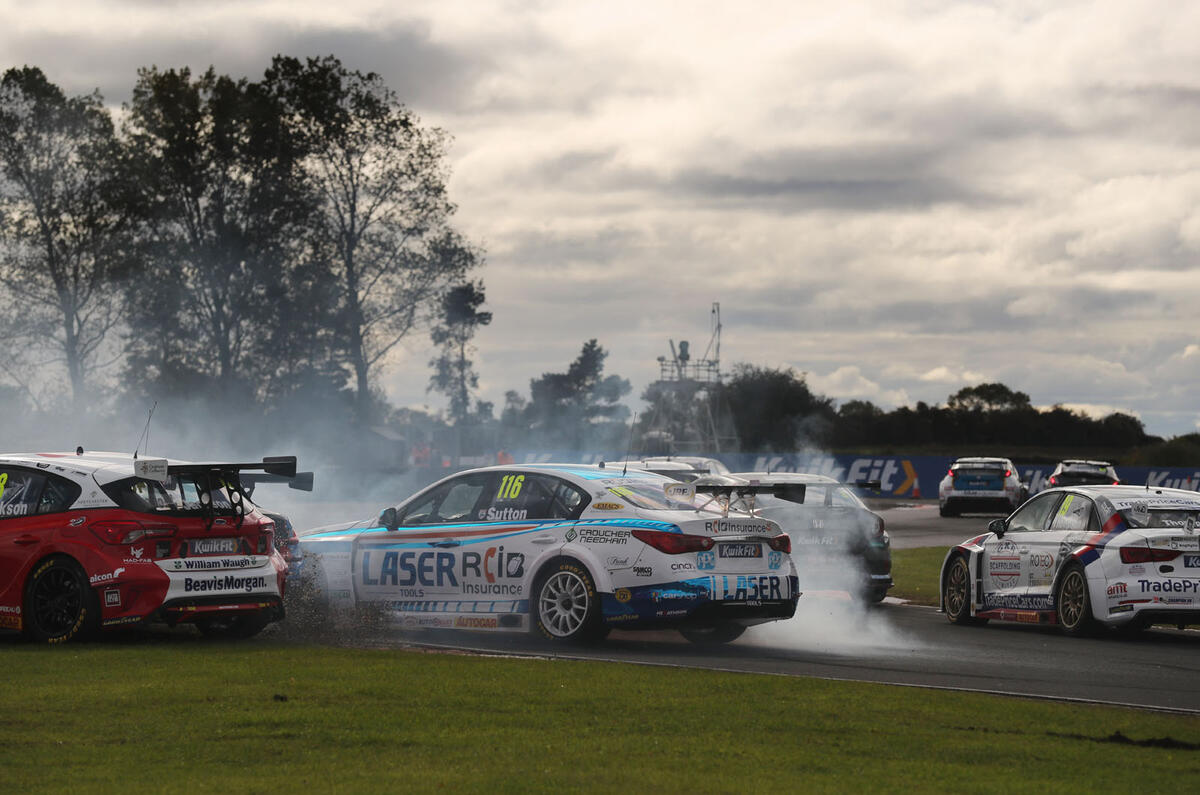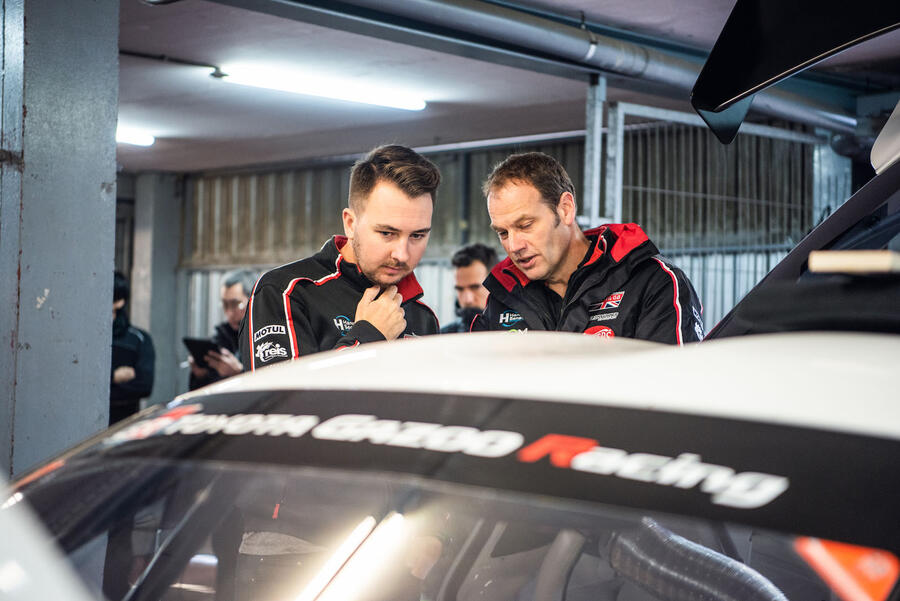The British Touring Car Championship’s best-known calling card is its door-handle-todoor-handle racing. Sometimes it spills over into full-on contact, and the crowd and the TV audience love it.
But far from being the free-for-all that many casual observers might think it is, the measures put in place by the officials in Britain’s leading tin-top series to keep the action clean put most international categories to shame. There are rules of engagement, and each driver knows them. Not only that but also there’s a ‘spy in the cab’: each car has a specially mounted camera sitting just behind the driver’s shoulder.
The officials also have access to all the data traces from each car: steering angles, throttle application and braking – and can even tune in to any radio transmissions they deem necessary. Rear-facing cameras will be added to their arsenal in 2021, too. Penalties meted out range from a slap on the wrist to an exclusion from the entire championship.
The drivers in the BTCC are probably the most scrutinised in any form of motorsport. They might plead innocence after a shunt, but there’s nowhere to hide. Once the dust settles and the engines are switched off, a driver lives in fear of the call to ‘the bus’. It’s like being called to see the headmaster at school when a ticking off is (almost) inevitable.

The BTCC race-day headquarters is a luxurious converted coach, but if a driver is summoned to the upstairs office, this is where they will have to explain themselves. It contains a video screen, the clerk of the course, the deputy clerk of the course and the driving standards advisor.
How it works
There are three main ways a driver can be in hot water. The first is if a rival is upset about a move, they can go to the officials and register a complaint. Clerk of the course Ian Watson can receive information from trackside marshals’ post chief and then there are the ITV4 cameras that capture each race live. When Watson, who has access to the feed of every camera throughout the race, thinks an incident is worthy of investigation, the process begins.








































Add your comment